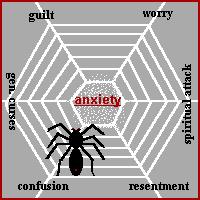The Emotional Dimension of Recovery, Part 1
 A Christian friend once told me, “Well, why even talk about feelings, because you can’t trust them anyway. The Bible says, Have faith and don’t trust your feelings.” Well, that’s not really a healthy attitude at all, because feelings are real. Denial is all of these repressed and stuffed emotions, and part of sobriety and getting better means that all of a sudden all of the pain that has been pushed down. And anger, and everything else that has been there, is going to start rising to the surface, and these people will start feeling depression and loneliness and fear. And we need to be prepared to hear those things and to respond to them in a supportive, kind way. It doesn’t mean that — and some of those feelings are not accurate at all, but still need to be respected and accepted. It has to be there.
A Christian friend once told me, “Well, why even talk about feelings, because you can’t trust them anyway. The Bible says, Have faith and don’t trust your feelings.” Well, that’s not really a healthy attitude at all, because feelings are real. Denial is all of these repressed and stuffed emotions, and part of sobriety and getting better means that all of a sudden all of the pain that has been pushed down. And anger, and everything else that has been there, is going to start rising to the surface, and these people will start feeling depression and loneliness and fear. And we need to be prepared to hear those things and to respond to them in a supportive, kind way. It doesn’t mean that — and some of those feelings are not accurate at all, but still need to be respected and accepted. It has to be there.
The Emotional Dimension of Recovery, Part 1 Read More »





 And always, I felt inexplicably sad. Nothing made me happy. Most frightening of all, I made intricate preparations for my death. 1
And always, I felt inexplicably sad. Nothing made me happy. Most frightening of all, I made intricate preparations for my death. 1


